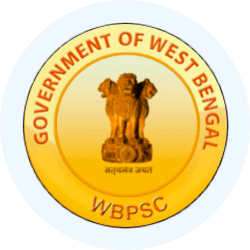WBCS (West Bengal) Exam > WBCS (West Bengal) Videos > WBCS Preparation: All Subjects > Santhal Rebellion
Santhal Rebellion Video Lecture | WBCS Preparation: All Subjects - WBCS (West Bengal)
|
77 videos|109 docs
|
FAQs on Santhal Rebellion Video Lecture - WBCS Preparation: All Subjects - WBCS (West Bengal)
| 1. What was the Santhal Rebellion? |  |
Ans. The Santhal Rebellion was an armed uprising by the Santhal tribe in present-day West Bengal, India, against the oppressive British rule in 1855-1856. It was one of the largest and significant indigenous uprisings against colonial exploitation.
| 2. What were the main causes of the Santhal Rebellion? |  |
Ans. The main causes of the Santhal Rebellion were the British encroachment on Santhal lands, the imposition of unjust land revenue policies, forced labor, high taxation, and exploitation by moneylenders. These factors resulted in widespread discontent among the Santhal community.
| 3. How did the Santhal Rebellion impact the British administration in West Bengal? |  |
Ans. The Santhal Rebellion posed a significant challenge to the British administration in West Bengal. The rebellion lasted for several months and led to the loss of many British lives. It exposed the exploitative policies of the British and raised awareness about the plight of indigenous communities. Eventually, the rebellion was suppressed, but it left a lasting impact on the colonial administration's approach towards tribal communities.
| 4. Who were the leaders of the Santhal Rebellion? |  |
Ans. The Santhal Rebellion was led by four prominent leaders: Sidhu Murmu, Kanhu Murmu, Chand Murmu, and Bhairav Murmu. These leaders mobilized the Santhal community and organized resistance against the British. Their leadership played a crucial role in uniting the Santhals and carrying out the rebellion.
| 5. What were the consequences of the Santhal Rebellion? |  |
Ans. The consequences of the Santhal Rebellion were both immediate and long-term. In the short term, the rebellion was brutally suppressed by the British, resulting in the deaths of thousands of Santhals. However, the rebellion brought attention to the grievances of indigenous communities and paved the way for future movements for land rights and social justice. It also highlighted the need for reforms in colonial policies towards tribal communities.
|
77 videos|109 docs
|

|
Explore Courses for WBCS (West Bengal) exam
|

|
Signup for Free!
Signup to see your scores go up within 7 days! Learn & Practice with 1000+ FREE Notes, Videos & Tests.
Related Searches
















